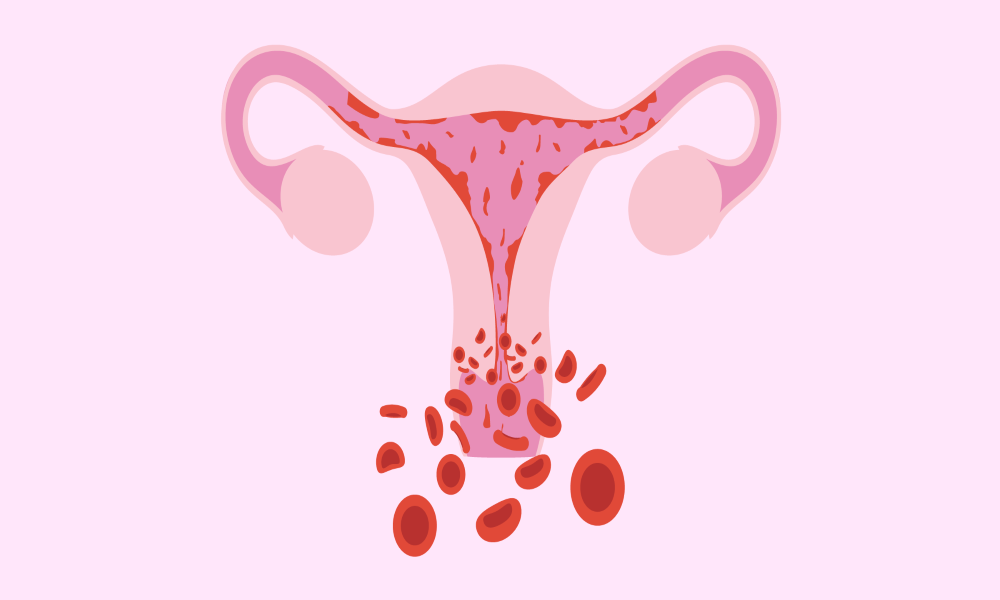Signs And Symptoms Of Pregnancy After Endometrial Ablation
Endometrial ablation is a medical procedure that is used to treat abnormal uterine bleeding in women. This procedure involves the removal of the lining of the uterus, which makes it difficult for a fertilized egg to implant and grow. However, in some cases, women may still become pregnant after undergoing endometrial ablation. It is important to be aware of the signs and symptoms of pregnancy after endometrial ablation, as they may differ from the typical signs of pregnancy and may require immediate medical attention.
What is endometrial ablation?
Endometrial ablation is a medical procedure to treat excessive menstrual bleeding in women. During this procedure, the lining of the uterus is destroyed using various techniques, such as thermal ablation, microwave ablation, and cryoablation. This leads to a significant reduction in menstrual bleeding or even stops it altogether. However, women who undergo endometrial ablation must understand the implications of the procedure on future pregnancies.
The uterus has an innermost layer called the endometrium. The endometrium is the most dynamic layer of the uterus because it sheds away in periods and grows back every month.
Endometrial ablation is the procedure where a doctor would remove the endometrium of the uterus because of severe health concerns that may arise in a woman. Endometrial ablation is done when a woman bleeds heavily during her periods.
Bleeding heavily can mean different for different women. For some, it may be normal, but when she notices that she is bleeding heavier than her regular periods that she soaks almost 3 to 4 pads per day, then it is considered as heavy periods.
Similarly, bleeding between a menstrual cycle is again a warning sign and can be hazardous for a woman’s re productivity. It can mean she may have fibroids, polyps, carcinoma of the endometrium, or any other disease. But regardless of the condition, heavy bleeding is always a concern for the woman and the doctor.
Pregnancy after endometrial ablation is possible but associated with a higher risk of complications. Since the lining of the uterus is partially or destroyed during the procedure, the chances of implantation of a fertilized egg are reduced. Even if implantation does occur, the risk of miscarriage, premature birth, and abnormal placental attachment is higher. Additionally, if a woman gets pregnant after endometrial ablation, she may experience heavy bleeding, which can be life-threatening for both the mother and the baby.
It is essential for women who undergo endometrial ablation to use effective contraception to avoid unintended pregnancies. Hormonal contraceptives, such as birth control pills, patches, or injections, are the most effective methods of contraception after endometrial ablation. Barrier methods, such as condoms or diaphragms, are less effective, as they do not protect against pregnancy or hormonal methods.
Women who wish to get pregnant after endometrial ablation should discuss their options with their doctor. In some cases, a repeat ablation or a hysterectomy may be necessary to improve the chances of a successful pregnancy. Alternatively, in vitro fertilization (IVF) may be an option for women who have difficulty conceiving naturally. IVF involves fertilizing eggs outside the body and transferring them to the uterus, bypassing the damaged endometrium.
Endometrial ablation is a medical procedure used to treat abnormal uterine bleeding by removing or destroying the lining of the uterus. There are several different techniques used for endometrial ablation, including:
- Thermal ablation: This technique uses heat to destroy the lining of the uterus. The most common thermal ablation methods include radiofrequency ablation, which uses radiofrequency energy, and microwave endometrial ablation, which uses microwave energy.
- Cryoablation: This technique uses extreme cold to destroy the uterus lining. A special probe is used to freeze the lining, which is then destroyed and absorbed by the body.
- Hydrothermal ablation: This technique uses hot water or saline to destroy the uterus lining. A special device circulates hot fluid through the uterus, which destroys the lining.
- Balloon ablation: This technique uses a balloon filled with hot water or saline to destroy the lining of the uterus. The balloon is inserted into the uterus and then inflated with hot fluid to destroy the lining.
- Hysteroscopic resection: This technique involves using a hysteroscope (a thin, lighted tube) to remove the lining of the uterus. The lining is cut away using a special tool inserted through the hysteroscope.
Who needs an endometrial ablation?
A woman who has a severe impact on her day to day life because she is bleeding heavily during her periods needs endometrial ablation. Heavy bleeding may make a woman severely anemic, and this further will deteriorate her health as a whole.
The doctor would advise you endometrial ablation when most other options do no suit according to your condition.
But if you have uterine cancer, a pelvic inflammatory disorder, or any other uterine infection, an intrauterine contraceptive device in the uterus, then the doctor will not advise you for this procedure.
Related:Signs of Pregnancy Presumptive, Probable, Positive Full Fact Sheet
Can You Get Pregnant After Endometrial Ablation? Exploring the Possibilities
Endometrial ablation is a medical procedure used to treat excessive menstrual bleeding in women. During the procedure, the lining of the uterus is destroyed using various techniques, including thermal ablation, microwave ablation, and cryoablation. While endometrial ablation is considered an effective treatment for heavy menstrual bleeding, it may have implications for future pregnancies. Many women wonder if it is possible to get pregnant after endometrial ablation and, if so, what the chances of a successful pregnancy are.
Can You Get Pregnant After Endometrial Ablation?
Yes, getting pregnant after endometrial ablation is possible, although the chances are reduced. The procedure damages the endometrium, the lining of the uterus, where a fertilized egg implants and grows into a fetus. After the procedure, the endometrium may be thinner or partially destroyed, making it difficult for an egg to implant in the uterus. The chances of pregnancy after endometrial ablation depends on several factors, including the type of ablation procedure used, the woman’s age, and the presence of other fertility issues.
What Are the Chances of a Successful Pregnancy After Endometrial Ablation?
The chances of a successful pregnancy after an endometrial ablation are lower than for women who have not undergone the procedure. Studies show that the pregnancy rate after endometrial ablation is between 10% and 50%, depending on the type of procedure used. The success rate of getting pregnant after endometrial ablation may also be affected by the woman’s age, as the chances of conception decline with age. Women over 40 may have a lower chance of getting pregnant after endometrial ablation.
What Are the Risks of Pregnancy After Endometrial Ablation?
Pregnancy after endometrial ablation is associated with an increased risk of complications. The reduced thickness or partial destruction of the endometrium may increase the risk of miscarriage, premature birth, and abnormal placental attachment. If a woman gets pregnant after endometrial ablation, she may experience heavy bleeding, which can be life-threatening for both the mother and the baby. Therefore, it is essential for women who wish to get pregnant after endometrial ablation to discuss their options with their doctor and be closely monitored throughout their pregnancy.
What Are the Options for Women who Want to Get Pregnant After Endometrial Ablation?
Women who want to get pregnant after endometrial ablation should discuss their options with their doctor. Depending on the type of ablation procedure used, a repeat ablation or a hysterectomy may be necessary to improve the chances of a successful pregnancy. In vitro fertilization (IVF) may also be an option for women who have difficulty conceiving naturally. IVF involves fertilizing eggs outside the body and transferring them to the uterus, bypassing the damaged endometrium.
What are the complications of endometrial ablation?
Pregnancy after endometrial ablation:
After the ablation, the endometrium of the uterus is removed, which leaves a woman with minimal chances of getting pregnant as the fertilized egg will have no layer to get attached to. Similarly, the endometrium cushions the egg for better growth.
Although the chances are low, and it is rare for a woman to become pregnant, but yes, there are chances for a woman to become pregnant after going under endometrial ablation.
Pregnancy after endometrial statistics:
The pregnancy rate drops to 0.24 to 0.68 percent for a woman to conceive after ablation. These statistics are extremely low but not entirely impossible. There have been women who got pregnant after endometrial ablation and gave birth to live and healthy baby after reaching their full term.
Naturally, the risks of conceiving after an ablation also increase. The baby may not grow properly because of the loss of the cushioning tissues; therefore, the chances of fetal death increases dramatically.
On the other hand, getting pregnant after an endometrial ablation brings equal health risks for the mother. The scarred tissue of the uterus can result in abnormal placental attachment. If the placenta has not adhered to the right site in the uterus, it will become a health concern for a woman leading to severe bleeding.
Signs of pregnancy after endometrial ablation:
Signs and Symptoms of Pregnancy After Endometrial Ablation
Pregnancy after endometrial ablation is possible, although the chances are reduced. Women who have had endometrial ablation should be aware of the signs and symptoms of pregnancy to ensure they receive proper medical care. Some common signs and symptoms of pregnancy after endometrial ablation includes:
- Missed period
- Fatigued
- Tender breasts
- Light spotting or implantation bleeding
- Mood swings
- Headaches
- Food cravings
- Nausea and vomiting
- Heartburn
- Frequent urination
Missed Period: The most common sign of pregnancy is a missed period. However, it can be challenging to determine if a woman has missed a period after endometrial ablation since the procedure can disrupt the menstrual cycle.
Positive Pregnancy Test: A positive pregnancy test is a reliable indicator of pregnancy after endometrial ablation. Women who have had the procedure should take a pregnancy test if they suspect they are pregnant.
Nausea and Vomiting: Morning sickness is a common pregnancy symptom, and women who have had endometrial ablation may also experience it.
Breast Tenderness: Women who are pregnant often experience breast tenderness or swelling. This can be an indicator of pregnancy after endometrial ablation as well.
Fatigue: Pregnant women may experience fatigue or exhaustion, which can result from hormonal changes in their bodies.
It is essential for women who have had endometrial ablation to be aware of the signs and symptoms of pregnancy to ensure they receive proper medical care. Pregnancy after endometrial ablation is associated with an increased risk of complications, including miscarriage, premature birth, and abnormal placental attachment. It is essential for women who suspect they are pregnant after endometrial ablation to seek medical attention promptly to ensure they receive proper prenatal care.
In addition, women with endometrial ablation should use effective contraception to avoid unintended pregnancies. Hormonal contraceptives, such as birth control pills, patches, or injections, are the most effective methods of contraception after endometrial ablation. Barrier methods, such as condoms or diaphragms, are less effective, as they do not protect against pregnancy or hormonal methods.
Women who have had endometrial ablation should be aware of the signs and symptoms of pregnancy to ensure they receive proper medical care. Pregnancy after endometrial ablation is associated with an increased risk of complications, and women should use effective contraception to avoid unintended pregnancies.
Symptoms of Pregnancy vs. Post-Ablation Syndrome: How to Tell the Difference
After having an endometrial ablation procedure, it can be challenging to tell the difference between pregnancy symptoms and post-ablation syndrome. Post-ablation syndrome is a condition that some women experience after the procedure, characterized by symptoms such as cramping, pelvic pain, and vaginal discharge. These symptoms can be similar to those experienced during early pregnancy, making it difficult to distinguish between them.
Here are some ways to tell the difference between symptoms of pregnancy and post-ablation syndrome:
Menstrual bleeding: Women may experience lighter or irregular periods after endometrial ablation. If you experience bleeding, it is more likely post-ablation syndrome than a sign of pregnancy.
Timeframe: The timing of the symptoms can help distinguish between pregnancy and post-ablation syndrome. Pregnancy symptoms typically occur two to three weeks after conception, while post-ablation syndrome can occur immediately after the procedure or up to several months later.
Vaginal discharge: Both pregnancy and post-ablation syndrome can cause vaginal discharge. However, post-ablation syndrome is more likely associated with foul-smelling or discolored discharge.
Cramping and pelvic pain: Cramping and pelvic pain are common symptoms of post-ablation syndrome and early pregnancy. However, post-ablation syndrome is more likely associated with severe cramping and pain.
Positive pregnancy test: A positive pregnancy test is a reliable indicator of pregnancy, while post-ablation syndrome will not produce a positive pregnancy test.
If you suspect you may be pregnant after an endometrial ablation, you must speak with your doctor. They can perform a pregnancy test and help distinguish between pregnancy and post-ablation syndrome. Early detection and treatment of pregnancy after endometrial ablation can help minimize the risks of complications.
It can be challenging to distinguish between pregnancy symptoms and post-ablation syndrome. However, understanding the differences between the two can help women receive proper medical care and treatment. If you are experiencing any symptoms after endometrial ablation, speak with your doctor to ensure that you receive the appropriate diagnosis and care.
The Role of Medical Intervention: What to Do if You Suspect You’re Pregnant After Endometrial Ablation
If you suspect you may be pregnant after endometrial ablation, it is essential to seek medical intervention. Pregnancy after endometrial ablation is associated with an increased risk of complications, such as ectopic pregnancy or miscarriage. Early detection and treatment of pregnancy after endometrial ablation can help minimize these risks.
Here are some steps to take if you suspect that you may be pregnant after endometrial ablation:
Take a pregnancy test: The first step is to take a pregnancy test to confirm your pregnancy. If the test is positive, make an appointment with your doctor as soon as possible.
Consult with your doctor: Speak with your doctor about your medical history, including the endometrial ablation procedure. Your doctor can perform a physical exam, ultrasound, or other tests to determine if you are pregnant and evaluate any potential risks or complications.
Receive prenatal care: If you are pregnant, it is essential to receive proper prenatal care to minimize the risks of complications. Your doctor can recommend a prenatal care plan tailored to your individual needs.
Consider your options: Pregnancy after endometrial ablation can be challenging, and you may have questions about your options. Your doctor can provide information about your options, such as continuing or terminating the pregnancy.
Use effective contraception: After having endometrial ablation, it is essential to use effective contraception to prevent unintended pregnancies. Your doctor can provide information about the best contraception methods for your needs.
Navigating Pregnancy After Endometrial Ablation: Tips for a Safe and Healthy Journey
Pregnancy after endometrial ablation can be a challenging and complicated journey. However, with proper medical care and attention, it is possible to have a safe and healthy pregnancy. Here are some tips for navigating pregnancy after endometrial ablation:
Seek early, and regular prenatal care: Early and regular prenatal care is critical to ensure that you and your baby remain healthy throughout the pregnancy. Your doctor can monitor your health and evaluate any potential risks or complications.
Be aware of the risks: Pregnancy after endometrial ablation is associated with an increased risk of complications, such as ectopic pregnancy or miscarriage. It is essential to be aware of these risks and take steps to minimize them.
Monitor symptoms closely: If you experience any unusual symptoms, such as bleeding, cramping, or pelvic pain, speak with your doctor immediately. These symptoms can be signs of potential complications and require prompt medical attention.
Follow a healthy diet and exercise routine: Eating a healthy diet and maintaining a regular exercise routine can help you stay healthy throughout the pregnancy. Your doctor can guide the best diet and exercise plan for your individual needs.
Consider a high-risk pregnancy specialist: If your pregnancy is considered high-risk due to the endometrial ablation procedure, your doctor may recommend seeing a high-risk pregnancy specialist. These specialists have the expertise and experience to provide the best care for women with complicated pregnancies.
Use effective contraception after delivery: It is essential to use effective contraception to prevent unintended pregnancies. Your doctor can provide information about the best contraception methods for your needs.
Considering Future Fertility: What Pregnancy After Endometrial Ablation Means for Your Reproductive Health
Pregnancy after endometrial ablation can significantly impact your future fertility and reproductive health. Endometrial ablation is a procedure that is often used to treat heavy menstrual bleeding and is considered a form of permanent contraception. Pregnancy after endometrial ablation is considered high-risk and requires careful monitoring and medical attention.
Here are some considerations regarding future fertility and reproductive health after pregnancy after endometrial ablation:
Impact on future pregnancies: Pregnancy after endometrial ablation can increase the risk of complications, such as ectopic pregnancy, miscarriage, and preterm labor. It is essential to discuss these risks with your doctor and develop a plan for safe and healthy pregnancies in the future.
Future fertility: Endometrial ablation is considered a permanent form of contraception and can significantly reduce the chances of pregnancy in the future. Pregnancy after endometrial ablation may be possible but is considered high-risk, and future pregnancies may require medical intervention or fertility treatments.
Alternative treatments: If you are concerned about future fertility and reproductive health, alternative treatments may be available. Your doctor can provide information about alternative treatments, such as hormonal or non-hormonal medications, that may suit your needs.
Long-term health risks: Endometrial ablation can also have long-term health risks, such as the development of endometrial cancer. Discussing these risks with your doctor and developing a plan for ongoing monitoring and care is essential.
Mental health considerations: Pregnancy after endometrial ablation can be emotionally challenging and may require additional support and counseling. It is essential to seek help if you are struggling with the emotional impact of pregnancy after endometrial ablation.
Real Life Experiences: Stories from Women Who Got Pregnant After Endometrial Ablation
Pregnancy experience after endometrial ablation can vary significantly from woman to woman. While some women may have successful and healthy pregnancies, others may experience complications and challenges. Here are some real-life experiences of women who got pregnant after endometrial ablation:
Sarah’s story
Sarah underwent endometrial ablation after experiencing heavy menstrual bleeding. She was surprised to learn that she had become pregnant a few years later. Despite some early complications, including spotting and cramping, Sarah’s pregnancy was successful, and she gave birth to a healthy baby girl.
Lisa’s story
Lisa underwent endometrial ablation after completing her family and was shocked to discover that she was pregnant several years later. She experienced a difficult pregnancy, bleeding and cramping throughout the first trimester, but ultimately gave birth to a healthy baby boy.
Jackie’s story
Jackie underwent endometrial ablation after struggling with heavy menstrual bleeding and was devastated to learn that she had become pregnant several years later. Her pregnancy was complicated, with multiple hospitalizations for preterm labor and other complications. Despite the challenges, Jackie gave birth to a healthy baby boy.
Kelly’s story
Kelly underwent endometrial ablation after completing her family and was surprised to discover that she had become pregnant a few years later. She experienced several complications during the pregnancy, including placenta previa and premature rupture of membranes, but ultimately gave birth to a healthy baby girl.
Amanda’s story
Amanda underwent endometrial ablation after experiencing heavy menstrual bleeding and was shocked to learn that she had become pregnant several years later. She experienced a difficult pregnancy, with multiple hospitalizations for preterm labor, but ultimately gave birth to a healthy baby boy.
Experience of pregnancy after endometrial ablation can vary significantly from woman to woman. While some women may have successful and healthy pregnancies, others may experience complications and challenges. It is essential to seek medical attention and support throughout the pregnancy to ensure the best possible outcome.
Empowering Yourself: Taking Charge of Your Health and Reproductive Choices After Endometrial Ablation.
Endometrial ablation is a medical procedure that can significantly impact a woman’s reproductive health and future fertility. Taking charge of your health and reproductive choices after endometrial ablation is essential to ensure the best possible outcome. Here are some tips for empowering yourself after endometrial ablation:
Discuss your options: After endometrial ablation, discussing your options for future fertility and reproductive health with your doctor is essential. Your doctor can provide information about alternative treatments, such as hormonal or non-hormonal medications, and discuss the risks and benefits of each option.
Regular monitoring: It is essential to have regular monitoring of your reproductive health after endometrial ablation. This may include regular pelvic exams, ultrasounds, and other tests to ensure no complications or issues.
Be aware of symptoms: Knowing the signs and symptoms of pregnancy and post-ablation syndrome can help you identify potential issues early and seek medical attention promptly. Be aware of your body and seek medical attention if you experience any unusual symptoms or changes.
Seek support: Pregnancy after endometrial ablation can be emotionally challenging, and it is essential to seek support from friends, family, and healthcare professionals. Support groups and counseling can also provide valuable resources and help you cope with the emotional impact of pregnancy after endometrial ablation.
Take charge of your health: Taking charge of your health and reproductive choices after endometrial ablation means advocating for yourself and making informed decisions. Be proactive about your health, ask questions, and stay informed about your options and choices.
Empowering yourself after endometrial ablation means taking charge of your health and reproductive choices. By discussing your options with your doctor, having regular monitoring, being aware of symptoms, seeking support, and taking charge of your health, you can ensure the best possible outcome and maintain your reproductive health and well-being.
Tubal Ligation And Endometrial Ablation
Tubal ligation and endometrial ablation are two separate medical procedures that are performed for different purposes. Tubal ligation, also known as female sterilization or getting one’s “tubes tied,” is a permanent form of birth control that involves blocking or cutting the fallopian tubes. This prevents the eggs from being fertilized by sperm, and therefore, pregnancy cannot occur.
On the other hand, endometrial ablation is a medical procedure that involves removing or destroying the lining of the uterus. This is done to treat heavy or abnormal uterine bleeding, but it does not affect a woman’s ability to become pregnant. It is important to note that endometrial ablation should not be performed as a form of permanent birth control.
While tubal ligation and endometrial ablation are not typically performed together, they can be combined in certain cases, such as if a woman has heavy or abnormal bleeding and also wishes to undergo permanent sterilization. However, it is important to discuss the risks and benefits of combining the procedures with a doctor before making any decisions.
Tubal ligation and endometrial ablation are two separate medical procedures with different purposes. While they can be combined in certain cases, it is important to discuss the risks and benefits of combining the procedures with a doctor before making any decisions.
Reasons For False Positive Pregnancy Test
References:






One Reply to “Signs And Symptoms Of Pregnancy After Endometrial Ablation”